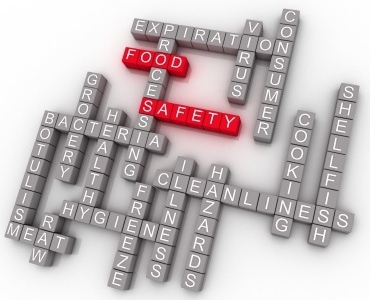
In 2010 there were 582 million cases of foodborne disease: WHO
Food in Canada
Food Safety Food Trends Research & Development Bake & Snack Food Beverages Confectionery Dairy Fruit & Vegetables Meat &Poultry Pet Food Seafood Specialty Foods food safety viruses WHO World Health OrganizationThe WHO releases preliminary findings from a study that show the global burden of foodborne diseases. World Health Day - April 7 - is dedicated to food safety

Geneva, Switzerland – The World Health Organization (WHO) is dedicating its World Health Day on April 7 to the issue of food safety.
 The WHO says that new data on the harm caused by foodborne illnesses highlight the threats posed by unsafe foods.
The WHO says that new data on the harm caused by foodborne illnesses highlight the threats posed by unsafe foods.
The organization is also calling on a coordinated cross-border effort across the entire food supply chain to help make food safe.
The theme for World Health Day is “From farm to plate, make food safe.”
“Food production has been industrialized and its trade and distribution have been globalized,” says Dr. Margaret Chan, the WHO’s Director-General, in a statement.
“These changes introduce multiple new opportunities for food to become contaminated with harmful bacteria, viruses, parasites, or chemicals.”
Some important results are related to enteric infections caused by viruses, bacteria and protozoa that enter the body when consumers ingest contaminated food.
Initial FERG figures, from 2010, show that:
• there were an estimated 582 million cases of 22 different foodborne enteric diseases and 351,000 associated deaths;
• the enteric disease agents responsible for most deaths were Salmonella Typhi (52,000 deaths), enteropathogenic E. coli (37,000) and norovirus (35,000);
• the African region recorded the highest disease burden for enteric foodborne disease, followed by South-East Asia;
• more than 40% of people suffering from enteric diseases caused by contaminated food were children under age 5.
Economic risks
Unsafe food is also an economic issue, especially in a globalized world.
Germany’s 2011 E.coli outbreak reportedly caused US$1.3 billion in losses for farmers and industries and US$236 million in emergency aid payments to 22 European Union Member States.
The WHO says developing better food safety systems that drive collective government and public action can help to prevent foodborne illnesses. More effective and rapid communication during a food safety emergency can also keep help to keep consumers safe.
Print this page